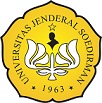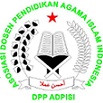Pemikiran Abdurrahman Wahid tentang Islam dan Humanisme
Abstract
In the Islamic world itself, the idea of humanism has been started since the beginning of Islamic history, namely when there was a debate between various schools of kalam about human destiny. The question that is often asked is whether humans have the freedom to determine their own destiny or humans have no free will at all, but their fate is determined by God. Abdurahman Wahid (Gus Dur) is one of the prominent Islamic figures who carries the idea of humanism. The enormous contribution of the ideas of Gus Dur's humanism, according to the author, is very important to study, this is because the ideas of Gus Dur's humanism are needed to understand Islam in relation to the problems of humanity and civilization. This is where the ideas of Gus Dur's humanism are believed to be able to answer the problems of the Indonesian people in relation to humanitarian issues, such as backwardness, poverty and ignorance. In order to synthesize between Islamic insights and Indonesian-Indonesian contexts, the writer tries to present a new breakthrough by examining Gus Dur's humanism ideas more. By using the Library Research method (literature review) the author tries to explain the idea of Gus Dur's humanism. This idea was obtained by the writer by reading and understanding various books by Gus Dur as primary data and several scientific journals as supporting data. The results of this paper stated that in Gus Dur's view, aspects of humanism were revealed in several important terms, firstly guaranteeing freedom of religion, secondly guaranteeing the protection of basic human rights, thirdly democratic culture, fourthly protecting minorities.
References
Arif, Syaiful. 2013. Humanisme Gusdur: Pergumulan Islam dan Kemanusiaan, Yogyakarta: Ar-Ruzz Media.
Aristoteles. 2004. Nicomachean Ethics, Sebuah Kitab Suci Etika, Terj. Embun Kenyowati, Jakarta: Teraju.
Bartolomeus, Sambho. 2013. Humanisme dan Humaniora, ed. Bambang Sugiharto, Bandung: Matahari.
Barton, Greg. 1999. Gagasan Islam Liberal di Indonesia: Pemikiran Neo-Modernisme Nurcholish Madjid, Djohan Effendim Ahmad Wahid dan Abdurrahman Wahid, Jakarta: Paramadina-Pustaka Antara.
________. 2008. Biografi Gus Dur, terj. Lie Hua, cetakan ke-VII,(Yogyakarta: LKiS.
Davies, Tony. 1997. Humanism, New York: Roudledge.
Hadi, Samasno. 2012. Konsep Humanisme Yunani Kuno dan Perkembangannya Dalam Sejarah Pemikiran Filsafat, dalam Jurnal Filsafat, Volume 2, Nomor 2.
Hadiwoyono, Harun. 1995. Sari Sejarah Filsafat Barat 2, Yogyakarta: Kanisius.
K.H. Darwis, Ellyasa, 1994. Gus Dur dan Masyarakat Sipil, Yogyakarata: LkiS.
Kurzman, Charles. 2003. Wacana Islam Liberal Memikikan Islam Kontemporer Tentang Isu-isu Global, terj.
Bahrul Ulum dan Heri Junaidi, Jakarta: Paramadina.
Latif, Yudi. 2011. Negara Paripurna, Historisitas, Rasionalita dan Aktualisasi Pancasila, Jakarta: Gramedia.
Masdar, Umaradi. 1998. Membaca Pikiran Gusdur dan Amien Rais Tentang Demokrasi, Yogyakarta: Pustaka Pelajar.
Muhammad, Alvian dan Helmi Jacob (ed). 2005. Gus Dur Bertutur, Jakarta: Divisi Penerbit Harian Proaksi.
Mulyana. 2016. Humanisme dan Tantangan Kehidupan Beragama, dalam Jurnal Agama dan Lintas Budaya, Volume 1, Nomor 1.
Salehudin, Ahmad. 2019. Abdurrahman Wahid: Keislaman, Kemanusiaan dan Kebangsaan, Yogyakarta: Basabasi.
Tim INCRes. 2000. Beyond The Symbols: Jejak Antropologis Pemikiran dan Gerakan Gus Dur, Bandung: Remaja Rosdakarya.
Wahid, Abdurrahman. 1980-1981. Islam The State, and Development in Indonesia, dalam makalah dialog nasional bersama Dr. Mochtar Buchori di LIPI.
________. 1998. Dialog Agama dan Masalah Pendangkalan Agama, dalam Komaruddin Hidayat dan Ahmad Gaus, Jakarta: Gramedia Pustaka Utama.
________. 2001. Pergulatan Negara, Agama dan Kebudayaan, Depok: Desantara.
________. 1988. Universalisme Islam dan Kosmopolitan Peradaban Islam, pelita.
________. 2006. Islamku, Islam Anda, Islam Kita: Agama Masyarakat Negara Demokrasi, Jakarta: the Wahid Institut.
________. 2010. Prisma Pemikiran Gus Dur, Yogyakarta: LkiS.
Yahya, Ali. 2007. Sama tapi Berbeda, Potret Keluarga Besar KH. Wahid Hasyim, (Jombang: Pustaka Ikapete the Ahmadi Institut.








